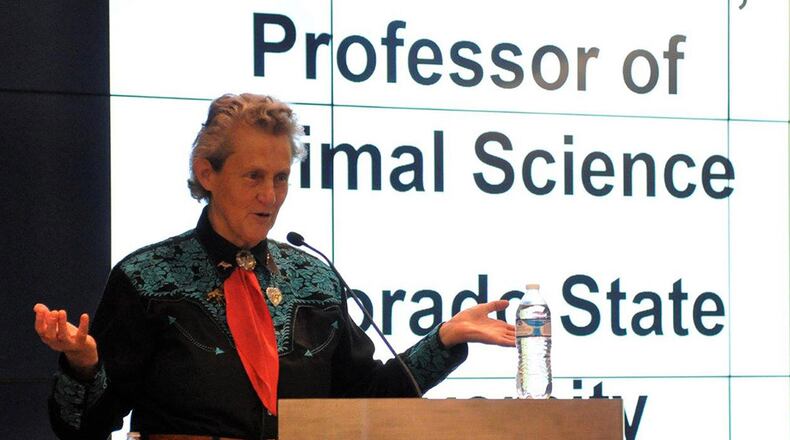“Our Defense Department needs novel solutions – we need new ideas; we need new thoughts; we need new ways of thinking,” said Dienst, who introduced Grandin. “The way Dr. Grandin approaches problems and the principles she’s learned apply to much more than cattle.”
Grandin emphasized that to help autistic children grow into programmers, architects and scientists, parents should direct them to work early, find a trade they love, touch, tinker and use their unique vision to soar upward.
“Here’s a bird kite I made when I was 7. See the little wing tips? I invented those before aircraft engineers did,” Grandin said, projecting a replica on the slide. “But I had to tinker to make it work.”
Grandin said that eventually, the children who think differently often become the tradespeople that industries need for quality, precision and innovation.
“Going to the moon – who do you think got us there? The Special Ed. Department! Who were the cathedral builders? I’m going to bet they were in the Special Ed. Department, a lot of them in skilled trades, learning on the job,” Grandin said. “The misfits build the stuff – we need ‘em.”
After Grandin’s lecture, families caring for loved ones with autism called in from across the Air Force to ask her advice on specific challenges.
The Diversity and Inclusion Speakers Series invites presenters to discuss how people with different minds, characteristics and abilities learn and change society. For more information on upcoming lectures, contact the ACQ Now Help Desk at acqnow@atrrs.army.mil.
About the Author
